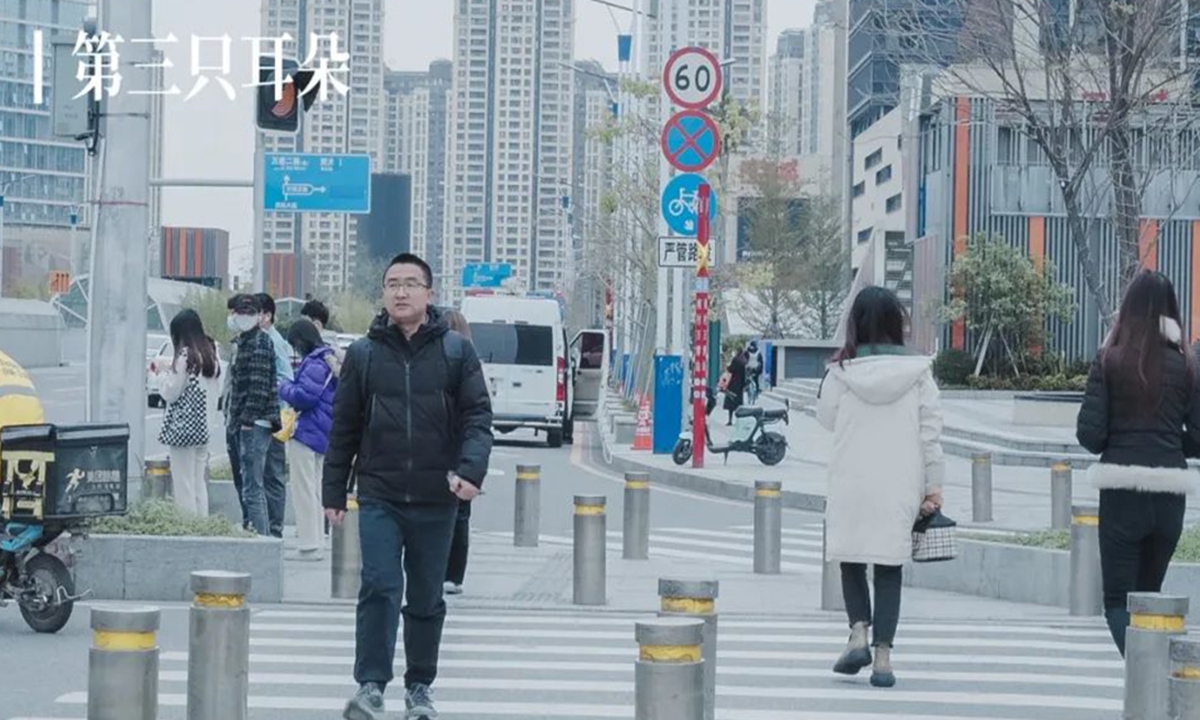
"For me the highest desire as a hearing impaired is to have a proper social life. Even with cochlear implant, the situation is not very much improved. If I ask another person to repeat what they said again and again they will finally lose interest in the conversation," A Hua (pseudonym), who lost his hearing at 12, shared his experience with the Global Times.
Among large population in China who are burdened with hearing impairment, having an efficient interaction with the rest of the world is probably the largest obstacle to retain a normal social life.
"If we cannot hear, then we cannot communicate, meaning that we would never involve ourselves in this society," said Shi Chengchuan, CEO of a start-up developing a voice-text transfer application. Also suffering from hearing loss, Shi was lucky enough to make a living for himself with a decent office job, but for others with a similar condition, things are more difficult. "I have a friend studying as an accountant in college, but he was refused repeatedly by employers because of the same reason," Shi recalled.
That was when the 30-year-old deiced to quit his regular job and devoted to developing a phone application to help those who experience the same disability.
Pave a 'blind road'

Photo: Web
VOIBOOK was developed by both Shi and his friends and released in 2017. As Shi told the Global Times, the aim is to use artificial intelligence (AI) to help those who cannot hear to communicate "as freely as possible" with rest of the world, and "we can see it as a 'blind road' paved for the hearing impaired people," he said.
"Of course, the best situation is that we can recover from the impairment but the chances varies from individual to individual under restraints such as technology, medical condition, and economy."
Shi lost his hearing ability at the age of 11 and worked as a software engineer in an international cooperation after graduating from Jinan University in South China's Guangzhou, one of China's top universities.
Before graduating, Shi already made attempts in augmented reality (AR) after he noticed Google introduced AR glasses giving solutions for people with hearing disabilities. Those glasses enabled people to read words on the glasses which are recognized from the surroundings as the other is talking.
After six months of his high-salary job, Shi resigned and created a start-up company named VOIBOOK to help more people like him with hearing impairment.
The app uses the structure of AISpeech and applies AI tech in speech synthesis, voice recognition, voice assessment, as well as translation. But it develops further functions such as automatically recognizing people's voice four meters away and identifying different languages, such as English, and Cantonese.
Tech assistance with caring values
The World Health Organization defined hearing loss as the condition on people with hearing under a threshold of 20 decibels and profound hearing loss on those with very little or no hearing at all needing to use sign language.
Statistics show that nearly 2.5 billion people worldwide will have various degrees of hearing loss by 2050. Whereas in China, reports say that around 72 million people suffer from different levels of hearing loss, and the number could reach 100 million by 2030 as aging problems deepen in society.
Facing the largest population with hearing loss in the world, China's 14th Five-Year Plan (2021-25) has already suggested building a social system to support and care for the families of persons with disabilities, which is essential to be better understood by society as well as getting support.
Shi admitted that "protection for this population is still in an early stage," but he is glad to see the government values it while more start-ups like VOIBOOK work in this area.
Yao Dengfeng, associate professor of the Beijing Union University, who also suffers from profound hearing loss since he was 1 year old, completed testing a pair of AR glasses with his students in the laboratory at the end of 2021. Yao's ambition is to witness the information accessibility technology to be applied in every corner of society.
There are only about 10,000 hearing-impaired personnel to provide professional services in China. After fixing the communication, other obstacles, including non-verbal signals such as car horns and light signal sounds, still trap the hearing impaired from stepping outside their room, turning cities into vicious jungles.
"In fact, one solution to this is that we are trying machine algorithms to let them learn to recognize these sounds, so the machine can alert when it comes to a certain sound," Shi noted.
"Many people think that I was lucky enough to have a regular job back then, but for me, I always wanted to make a difference with the knowledge that I have learnt for people like me," he said.

